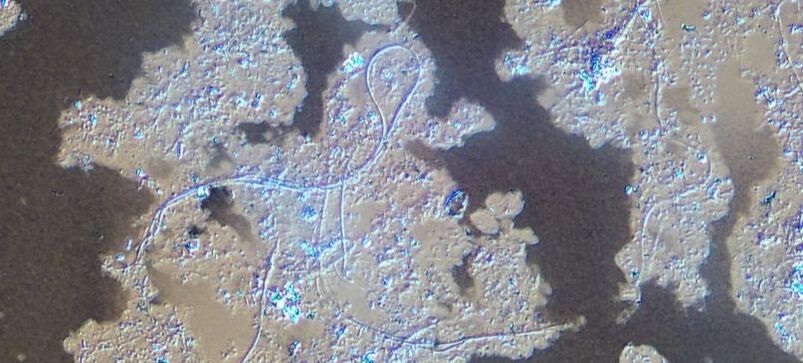Organisms responsible for non-filamentous bulking
Most non-filamentous bulking events are caused by either Zooglea or Thauera genera. When at normal levels, both Zooglea and Thauera are valuable for removing organics and produce a good EPS that builds floc. Problems happen when they start to over produce EPS which can be caused by high organic acids, limited macro-nutrients, or insoluble organics. The EPS acts to store organics for later use by the bacteria. If they do not consume the stored "food" before being "fed" again, you see an increase in EPS. While the F/M ratio helps identify the feeding conditions, using molecular testing to monitor actual population of bulking genera can also predict the likelihood of having a non-filamentous bulking event.
Applications of controlling non-filamentous bulking with molecular testing
- A MBR system was having problems with high transmembrane pressures requiring limited forward flows. Microscopic exam revealed high non-filamentous bulking but only once it became a problem. To investigate the microbial population, the facility ran MCA tests to determine what bacteria were present during both good and bad operations. From the MCA data, a qPCR test was developed to monitor for the exact organisms responsible for the worst cases on non-filamentous bulking. The qPCR results give rapid information about increases in problem organisms and can direct increased wasting is needed to prevent a full bulking event.
- An industrial wastewater system often had problems with clarifier solids not compacting sufficiently and WAS sludge requiring increased polymer dose to dewater. Using MCA and qPCR testing developed specifically for the system, we were able to find the safe operating range for the Thauera populations. When levels increased above ideal levels, the facility increased wasting rates to remove the excess EPS before it became a bulking event that caused operational problems.
In both examples above, Aster Bio has utilized Environmental Genomics™ tools to create a monitoring program for facilities with a history of non-filamentous bulking. Molecular testing proves valuable as it provides direct measures of microbes in the system. Molecular tests are extremely sensitive to changes in populations and should be used with microscopic exam. Additionally, Aster Bio with an in-house molecular lab, provides fast turn-around at an attractive price for routine monitoring purposes.


 RSS Feed
RSS Feed